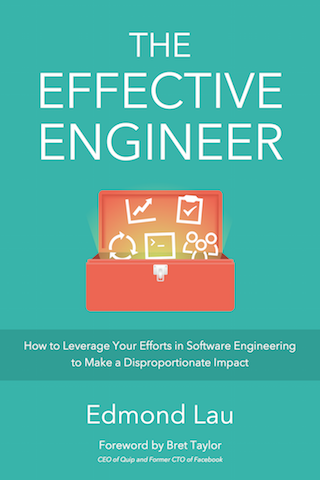The Single, Most Valuable Lesson I’ve Learned in My Professional Life

I worked long hours at Ooyala, the first startup that I joined after leaving Google. There were weeks where my team and I would work 70-80 hours and hardly any weeks where we worked fewer than 60. Like many teammates, I’d work in the office during the day and then continue to work from home after dinner. Even over holidays or vacations, I’d still be chugging away on my laptop or at least be on-call in the event that anything with the product were to go wrong.
After all, we were the underdog in the competitive online video market. We had products to ship and features to build, and there was no time to dillydally. The more that we worked, the more value we could produce and the more likely that our startup would succeed. Or so I had thought.
In the ensuing years, I’ve come to learn that working more hours isn’t the most effective way of producing more output. In fact, more hours don’t even necessarily translate to more output. Too many hours can lead to burnout or decreased productivity; productivity might even be negative if more time gets spent repairing the mistakes made when you’re tired than on building value.
There’s another, more sustainable way to increase your impact. It’s also the single, most valuable lesson I’ve learned in my professional life:
Focus on high-leverage activities.
Leverage is defined as the amount of output or impact produced per unit of time spent. It’s the return on investment for time spent.
This lesson applies regardless of whether you love to spend many waking hours working or whether you’re a subscriber of Tim Ferris’s 4-Hour Work Week philosophy. At some point, you’ll realize that there’s more work to be done than you have time available, and you’ll need to prioritize what to get done. You’ll learn that working more hours isn’t a sustainable solution to increasing your impact; instead, you’ll need to work smart and make better choices about what to do or not do. Leverage should be the central, guiding metric that helps you determine where to focus your time.
Another way of thinking about leverage is to consider the commonly mentioned Pareto principle 1 or the 80-20 rule – the idea that 80% of the contributions or impact come from 20% of the effort. That 20% of work consists of the highest leverage activities. The 4-Hour Work Week philosophy requires taking this to the extreme – assuming a normal 40-hour work week, what’s the 10% of effort (4 hours) that you can do to achieve most of the gains?
Former Intel CEO Andrew Grove explains in his book High-Output Management that, by definition, your leverage, and hence productivity, can be increased in three ways:
- By reducing the time it takes to complete a certain activity.
- By increasing the impact of a particular activity.
- By shifting to higher leverage activities.
Of the three, figuring out which activities are higher-leverage is often the trickiest and may require moving out of your comfort zone.
Some examples of professional activities that I’ve engaged in to increase the leverage of my time include:
Mentoring new hires. Mentoring (and really managing) is an extremely high-leverage activity. Over the course of a year, an employee will spend somewhere between 1880 to 2820 hours working (assuming 47 work-weeks and somewhere between 40-60 hours per week working). Spending 1 hour every day for a month (20 hours) mentoring or training a new hire may seem like a lot of time, but it represents only about 1% of the total time the new hire will spend working his or her first year and yet can have a significant influence over the productivity and effectiveness on the other 99% of those hours.
Building tools and automating repetitive work. Coming from a software engineering background, one high-leverage activity that I tend to do is to build tools that reduce manual, repetitive work. I’m a little biased, but I’m a firm believer that everyone would benefit knowing a little bit about coding, primarily because there are many fields not traditionally associated with computer science where a mindset of automation would have huge efficiency gains. Don’t do what a machine can do for you.
Investing in learning and in continuously improving. This falls in the bucket of “important and not urgent” tasks that Steven Covey describes in his time management matrix in The 7 Habits of Highly Effective People. Learning never seems like an urgent task, and it’s easy – if you don’t budget time for it – to allow unimportant interruptions to dictate your schedule. However, learning is what lets you improve your work productivity and increase the opportunities available, so it’s an important high-leverage activity.
Actively prioritizing tasks based on estimated return on investment. While I worked on user growth at Quora, a startup focused on questions and answers, there were hundreds of things that my team could consider working on at any given moment that might improve user engagement metrics. Deciding what to work on next to generate the highest return on time investment required regularly reviewing what needed to get done and having the necessary metrics to guide the decision-making. More generally, there’s always more to do than we have time for, and regular prioritization is the only way to ensure that we’re spending time on what really matters to us.
Holding tech talks and writing guides to bring new hires on board a team. At Quora, each new hire went through a series of tech talks and a set of codelabs. Inspired by Google’s training regimen, codelabs were documents that explained core software abstractions and concepts that we used, discussed the rationale for why we built them, walked through the relevant code in the codebase, and provided a set of exercises to solidify understanding. These took many people on the team many hours to write, but they provided a scalable and reusable resource that allowed new hires to start on a consistent foundation and cut down the amount of time that each individual mentor needed to spend teaching the same concepts.
Pushing back on meetings without an agenda or meetings that you don’t really need to be a part of. Poorly run meetings are negative leverage because they waste people’s time. Avoid those. A corollary to this is defining and setting agendas for meetings that you hold so that you don’t waste other people’s time.
Spending time on interviews and improving interview processes. Conducting interviews is a huge amount of work. Interviews interrupt your workday, and the hours spent talking with candidates, writing up feedback, and debriefing all add up to considerable amounts. However, making sure that you’re hiring the right people, that there’s a good process in place, and that the people being hired are people that you would be excited to work with is essential to building a strong team and a strong product. There have been many weeks where I’ve interviewed 4 candidates per week, and I think my personal record during the height of the recruiting season was doing 20 interviews in 20 consecutive workdays.
Re-using what’s available rather than re-inventing the wheel. Our time and energy are better spent adding value in unique ways than in rebuilding something that’s available off the shelf. Open-source projects, third-party tools, and even strategic outsourcing are ways to focus more of your time on your core competencies.
These activities provide just a few examples of how applying your time and energy in high-leverage areas can increase your impact beyond what you could achieve by just buckling down and working more hours. Hopefully, they inspire some ideas as to what you can do in your own career to increase your impact.
Don’t just work hard. Work smart.
This post was adapted from an answer I wrote on Quora.
Pareto Principle, Wikipedia. ↩

“A comprehensive tour of our industry's collective wisdom written with clarity.”
— Jack Heart, Engineering Manager at Asana
“Edmond managed to distill his decade of engineering experience into crystal-clear best practices.”
— Daniel Peng, Senior Staff Engineer at Google

“A comprehensive tour of our industry's collective wisdom written with clarity.”
— Jack Heart, Engineering Manager at Asana
“Edmond managed to distill his decade of engineering experience into crystal-clear best practices.”
— Daniel Peng, Senior Staff Engineer at Google


















Leave a Comment